Gretel and Hansel
 for disturbing images/thematic content, and brief drug material.
for disturbing images/thematic content, and brief drug material.
Reviewed by: Alexander Malsan
CONTRIBUTOR
| Moral Rating: | Extremely Offensive |
| Moviemaking Quality: |
|
| Primary Audience: | Adults |
| Genre: | Supernatural-Horror Dark-Fantasy |
| Length: | 1 hr. 27 min. |
| Year of Release: | 2020 |
| USA Release: |
January 30, 2020 (5 markets) January 31, 2020 (wide—3,007 theaters) VOD: April 7, 2020 DVD: May 5, 2020 |
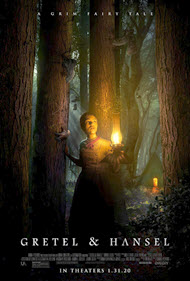

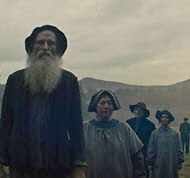
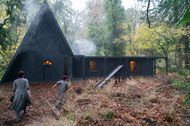
Important differences between this film and the original “Hansel and Gretel” by the Brothers Grimm which includes faith in God and prayer / The Grimm’s final version of the story was published in 1857.
Destitute mother facing famine abandons her children to save herself
Having a mother who is mentally unstable
Children trying to survive on their own
Darker reimagining of fairy tales
A teenage girl growing into womanhood who has dark visions and hears voices—and believes she has only two options: (a) be mistreated by men, or (b) die of famine
Experiencing emotional pains
Becoming overwhelmed by personal needs, resentment and desperation
A young person who wonders if there is such a thing as kindness without anything expected in return
FEAR, Anxiety and Worry—What does the Bible say? Answer
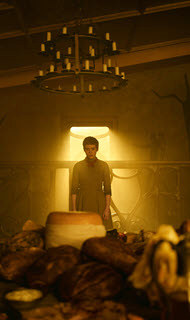
Evil and darkness in the real world
What is the Occult? Answer
THE OCCULT—What does the Bible say about it? Answer
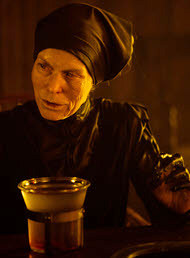
About witches in the Bible
About real world Wicca and Paganism
Learn about SPIRITUAL DARKNESS versus spiritual LIGHT
Who is SATAN, the enemy of God and all people? Answer
Is Satan A REAL PERSON that influences our world today? Is he affecting you? Answer
SATAN’S STRATEGY—What is one of Satan’s most successful strategies in dealing with followers of Christ? Answer
What are DEVILS and DEMONS in the Bible
Hallucinations due to consuming dangerous mushrooms
Is the Feminist movement the right answer to the mistreatment that some women endure in this sinful world? Answer
Why does God allow innocent people to suffer? Answer
What about the issue of suffering? Doesn’t this prove that there is no God and that we are on our own? Answer
Does God feel our pain? Answer
ORIGIN OF BAD THINGS—Why are they in our world if a good God created us? Answer
Did God make the world the way it is now? What kind of world would you create? Answer
| Featuring |
|---|
|
Sophia Lillis … Gretel—a 16-year old girl Samuel Leakey (Sammy Leakey) … Hansel—Gretel’s 8-year old brother Alice Krige … Holda—The Witch Jessica De Gouw … Young Holda Charles Babalola … The Hunter Ian Kenny … Knight Abdul Alshareef … Knight Manuel Pombo … Knight Beatrix Perkins … Clicky |
| Director |
|
Oz Perkins (Osgood Perkins) —son of actor Anthony Perkins |
| Producer |
|
Automatik Orion Pictures BRON Studios [Canada] See all » |
| Distributor |
Appalling dark evil, occultism, cannibalism—served with Feminist messaging
Times really are changing, especially for children. It used to be that a child could just focus on being a child. In some cases, this is still the case, but not for Gretel (Sophia Lillis). Gretel has, unfortunately, had to morph into the role of caretaker of her brother Hansel (Sam Leakey) rather quickly. Where are the parents in this scene? Their father is deceased, and their mother is, well, emotionally unstable, so Gretel had to take the rein.
In the midst of a terrible famine, Gretel and Hansel are walking through a very bleak forest when they spot a small cottage—isolated deep in the woods—with playground equipment outside. “A bit odd,” thinks Gretel, but she doesn’t give it a second thought. When Gretel and Hansel look through the windows, they see a bounty of food spread across a long table. They do what any child might after wandering aimlessly for the past couple days having only found and consumed poisonous mushrooms in the meantime… they break into the cottage, only to be caught by the owner, an elderly woman named Holda (Alice Krige).
She provides the children with shelter and food in exchange for assistance in and around the cottage. But something doesn’t feel right. How did Holda acquire all of this food amidst a severe famine (and continue to acquire it day after day) if she lives out in the woods all by herself? What is her real intention with having Gretel and Hansel stay at the cottage?
Gretel believes, “Kindness is never just given without something being asked of you in return.”
There is a real level of difficulty in taking a classic tale, albeit one that is over 200 years old, and staying authentic to the source material, particularly when said source material has had not one edition, but several (the first in 1812 and the final in 1857). (On a side note, for the sake of length, we are not going to talk about the rather strange take on Hansel and Gretel as witch-hunters in the 2013 film.)
“Gretel and Hansel,” as a film, falters in some areas and intrigues in others. In one instance, it brings out the dialog and text that the brothers Grimm were known for—text that could keep a reader engaged for, I can only assume, hours at end. The film’s secondary strength is in its scenery (or honestly, lack thereof) that does not necessarily scare but certainly make one feel uneasy. Where “Gretel and Hansel” fails is in two major areas: role-reversal and the overbearing presence and emphasis of sorcery.
In this “woke” version of the tale, Gretel is the leader and Hansel is, what I viewed, the sidekick along for the ride. There is obvious political messaging regarding Feminism and, in some respects, misogyny. For most of the movie, I felt the filmmakers were throwing this message in my face repeatedly, whether it was Gretel’s inner thoughts we heard or in her conversations with Holda. Please don’t misunderstand me. I have no issue WHATSOEVER with having strong female leads being at the forefront of a film. But, over the past 10 years, Hollywood has kept playing the same “we don’t need a man to save us” tune over and over again, and it just gets old. I just want Hollywood to stick to making interesting movies, not preachy politics.
Second, the sorcery in this film is incredibly dark, overly present and downright disturbing, reaching levels of atrocity I never thought I’d see in my lifetime. I say this because the sorcery, in a few instances, is accompanied by either violence or grotesque imagery (more on that in the content section). Holda (and this is no spoiler) is a witch and brews potions to give to Gretel to medicate her for ailments Holda is probably herself causing. The occult practices and dialog are appalling, as is the symbolism that appears around the house and in the forest (more on that later). The wickedness on display is so horrible that at the end, I walked out saddened at the darkness to which I had subjected myself and the Holy Spirit within.
Content of Concern
VIOLENCE AND RELATED IMAGERY (partial list): Gretel’s mother threatens to chop her into pieces. The mother later kicks both children out of their home, leaving them totally alone to fend for themselves against starvation and predators thereafter. Cannibalism is an underlying theme of the film, and this is shown front and center in a couple instances. ***SPOILER*** Also, the food Gretel and Hansel are daily eating is created from dead children and made to look like regular food through witchcraft. ***END SPOILER*** A man bellows loud screams and chases the children, tackling one. The person is smashed in the head with a rock leaving a visibly crushed skull at its eye. He recovers to attack both children, and receives a bloody and deadly shot to the head. A child is strapped to a table. Blood is shown seeping through sheets covering corpses. A father is magically-induced to stick a long red-hot poker into his mouth and brain, killing him. A horse is made to collapse, and we hear its legs graphically break as it dies. A child corpse’s head falls off. A witch dumps human organs and entrails onto a large table. A woman is decapitated.
OCCULT: Very Heavy. An illness, in the form of a black substance, is seen being drawn out of a child by an enchantress, but it is said something wicked took the illness’ place. Holda talks of a Great Provider (not God, but I assume Satan), planting seeds in a character to “awaken” the power in them. A character is seen summoning trees and the environment to them. A witch is seen coming to life from liquid. Occultic stars are shown on trees. People drink occult potions. A witch encourages a child to embrace occultic powers. People are spoken of as receiving a gift of “second sight.”
SEXUAL DIALOG OR CONTENT: 16-year old Gretel has her period, and we are shown blood seeping through her bed sheets. A dream seems to echo menstruation. While Gretel is interviewing for employment, a lecherous man asks her if her “maidenhood” (virginity) is intact and tells her how to treat his male guests. This is an incredibly uncomfortable and rather drawn out discussion. In the end, her mother is very angry at Gretel for not taking the position, stating, “He wasn’t looking for a housekeeper.” A hunter tells Gretel that she needs to learn about men, else she will be taken advantage of (implying sex or rape). Later on, there is another reference to the possibility of her being taken advantage of.
NUDITY: Gretel is naked taking a bath, however the water is foggy and covers all genitalia and breasts. There is also a naked chess piece on a chessboard.
PROFANITY: H*ll (2), but no uses of God’s name in vain, except possibly the perverse reference to a “Great Provider.”
DRUGS: Hansel and Gretel eat hallucinogenic mushrooms and become “high” and have an “out of body” experience.
OTHER: A couple characters are seen vomiting.
Spiritual Themes from Film
A major theme I truly feel called to address in this review is the theme of witchcraft, sorcery and the occult. The Bible has made it very clear: these things are an abomination to our Lord.
“Take no part in the unfruitful works of darkness, but instead expose them” -Ephesians 5:11
“The coming of the lawless one is by the activity of Satan with all power and false signs and wonders” —2 Thessalonians 2:9
“For the household gods utter nonsense, and the diviners see lies; they tell false dreams and give empty consolation. Therefore the people wander like sheep; they are afflicted for lack of a shepherd.” —Zechariah 10:2
There was punishment for those Israelites who sought and practiced the occult…
“If a person turns to mediums and necromancers, whoring after them, I will set my face against that person and will cut him off from among his people.” —Leviticus 20:6 (ESV)
“But the fearful, and unbelieving, and the abominable, and murderers, and whoremongers, and sorcerers, and idolaters, and all liars, shall have their part in the lake which burneth with fire and brimstone: which is the second death.” —Revelation 21:8
But remember….
“Little children, you are from God and have overcome them, for he who is in you is greater than he who is in the world.” —1 John 4:4
“I appeal to you therefore, brothers, by the mercies of God, to present your bodies as a living sacrifice, holy and acceptable to God, which is your spiritual worship. Do not be conformed to this world, but be transformed by the renewal of your mind, that by testing you may discern what is the will of God, what is good and acceptable and perfect.” —Romans 12:1-2
Final Thoughts
As a reviewer and a Christian, it is becoming increasingly hard to find films to recommend. It seems that with every theater I walk into, films are getting progressively darker or more political or more crass. “Gretel and Hansel” is no exception. With heavy occultic themes throughout the film, grotesque imagery and moments of sexual dialog, this is not a film anyone should see, let alone Christians (it would truly grieve the Holy Spirit to do so). I think our commenter, Curt, said it best when he suggested:
“Stay home… Don’t pay money to see this garbage that takes much of what was good (and even Christian) about the [original] story and spits on it.”
- Occult: Very Heavy
- Violence: Very Heavy
- Sex: Moderately Heavy
- Drugs/Alcohol: Moderate
- Profane language: Mild
- Nudity: Mild
- Vulgar/Crude language: None
Learn about DISCERNMENT—wisdom in making personal entertainment decisions
 Every time you buy a movie ticket or buy or rent a video you are in effect casting a vote telling Hollywood, “I’ll pay for that. That’s what I want.” Read our article
Every time you buy a movie ticket or buy or rent a video you are in effect casting a vote telling Hollywood, “I’ll pay for that. That’s what I want.” Read our article
See list of Relevant Issues—questions-and-answers.


PLEASE share your observations and insights to be posted here.
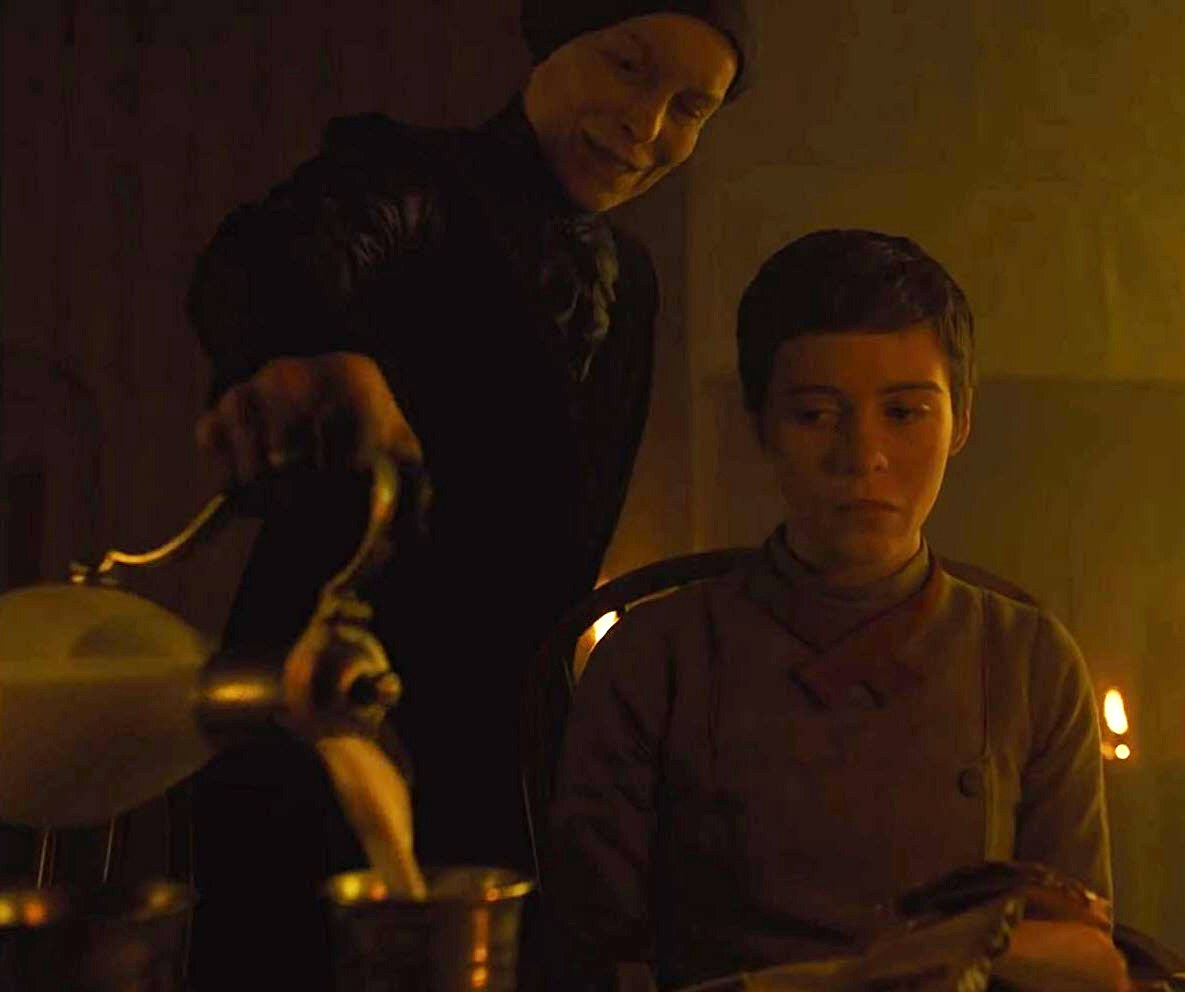

With that said, while I do enjoy the traditional fairy tale, I will not be seeing this movie. Having read other reviews and plot summaries of the film, it is apparent that the filmmakers have taken the traditional story and robbed it of much of what made it so good.
In the traditional story, Hansel starts off as the more proactive of the two siblings, and is the one who comforts his sister and originally gets them out of the forest the first time before they are unfortunately abandoned again farther into the forest. Hansel assumes responsibility as the leader until he is locked up by the Witch, and Gretel then has to figure out how to get herself and her brother out of danger without his help.
In this movie version, they have given Gretel the role of the leader right from the start of the story, completely (and probably ironically, as I know why the change was probably made) robbing her of her character development from reliant to heroic, and also robbing Hansel of his heroic traits entirely.
Second, according to some reviews that I’ve read, Christianity is portrayed negatively in the film. This is the complete opposite of the traditional story, where there are a couple of references to faith in God, and they are positive references. Although their mother clearly hates them and wants them gone, and their father is unable to stand up to her, Hansel doesn’t lose faith, and tells Gretel that God will not abandon them a few times during the first half of the story. At the end of the story, when it seems like all hope is gone, Gretel prays to God to help them, and it is shortly after she does so that she sees a way of escape, and tricks the Witch into burning in the very oven she planned on cooking the two children inside of. This is a very powerful message, and is one that is often glossed over or left out in many children’s book versions.
But in the new movie, we apparently get no positive references to God, and Gretel apparently uses witchcraft to defeat the Witch at the end of the movie. As someone who knows about the faith aspect of the traditional version, this looks like a complete slap in the face. To take a part of a story where the main character triumphs over evil because of faith in God, and replace it with the character triumphing over evil with witchcraft (Satanism) is a blatant mockery of God, and it represents much of what is wrong with movies today. It’s really too bad as well, because adapting the story to be closer to the traditional version still could made a very dark movie, and even some plot twists could have been put into the movie using some of the ambiguities of the story (such as the long lasting speculation of whether or not the mother and the Witch were the same person), but unfortunately the people who made this movie didn’t care.
Stay home and see if you can find the traditional story instead. Don’t pay money to see this garbage that takes much of what was good (and even Christian) about the story and spits on it.